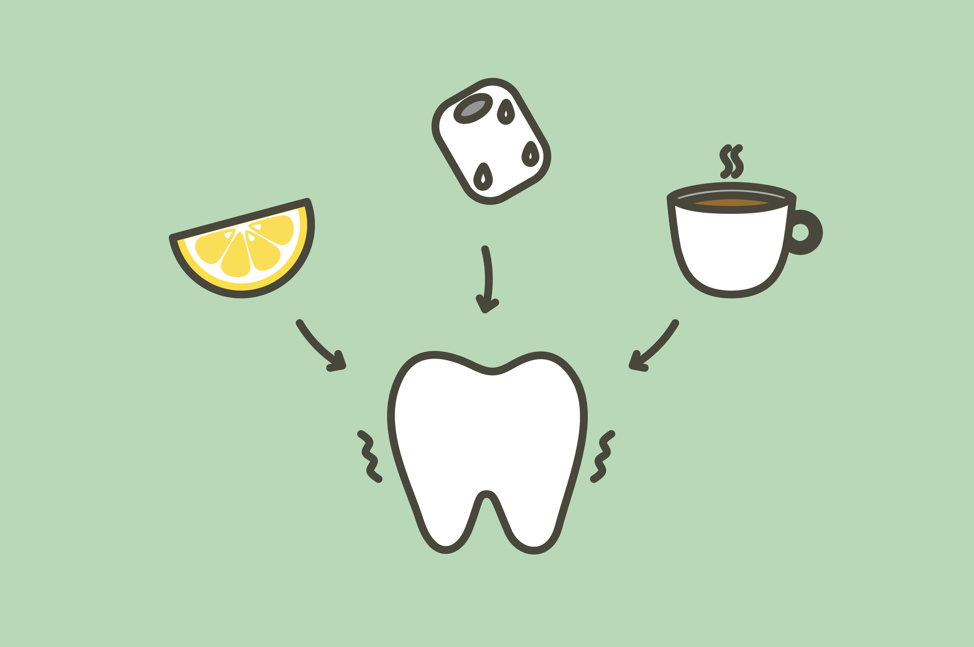
08 Feb Understanding Tooth Sensitivity
If you’ve ever suffered a toothache, you know just how painful tooth sensitivity can be. Tooth pain can dominate a person’s life, turning the acts of eating, drinking, and sometimes even breathing into a painful experience.
In this article, we’re going to discuss the specifics of tooth sensitivity, paying special attention to potential causes and effective treatments.
What Causes Tooth Sensitivity?
There are many things that can cause tooth sensitivity. If you’re suffering from sensitive teeth, one of the following is probably to blame.
Extreme Brushing
It’s not just important that you brush your teeth regularly, it’s important that you brush your teeth properly. Those who brush their teeth with too much strength and vigor run the risk of creating gum recession. As gums recede from the teeth, the roots become exposed causing increased sensitivity.
Foods that are High in Acid
While you can certainly eat some acidic foods, you should try to keep your consumption of them to a minimum. There are a number of reasons for this, but one of the primary reasons is that acidic foods are harmful to your teeth. Acidic foods can destroy tooth enamel, slowly exposing tooth dentin. This results in tooth sensitivity.
Grinding
Do you grind your teeth? If so, you should make an effort to stop as soon as possible. Teeth grinding has a number of negative consequences, one of which is tooth sensitivity. As the teeth create friction against one another, they slowly cause enamel to wear away. As enamel wears away, the teeth can become more sensitive.
Tooth Decay & Cracked Teeth
Tooth decay and cracked teeth are also common causes of tooth sensitivity. These conditions arise from a variety of reasons, including poor diet, poor dental hygiene habits, and grinding or clenching.
Treating Tooth Sensitivity
The exact treatment for a particular case of tooth sensitivity depends on the severity of the case. Usually, one of the following three treatments can be used to counteract tooth sensitivity.
Fluoride Treatment
If you’re dealing with minor tooth sensitivity, you can alleviate it by undergoing a fluoride treatment. This type of treatment is administered by a dentist, and involves having a gel substance applied to your teeth for a few minutes.
Fluoride is applied in an effort to strengthen existing enamel and dentin. In most cases, this will cause sensitivity to subside.
Bonding
In cases of more severe tooth sensitivity, your dentist might bond your teeth. This is a process where a tooth-colored resin is fused to an existing tooth. This is often done to cover an exposed tooth root.
Bonding is usually very effective in eliminating tooth sensitivity, as it prevents cold, heat, and pressure from directly affecting the root of the tooth.
Root Canal
If your tooth sensitivity has reached unbearable levels, you might need undergo a root canal. A root canal involves removing the pulp from a tooth, then replacing it with an inert substance.
Root canals are a good option for sensitivity caused by a crack in the tooth or decay near the root of the tooth. This is the most effective treatment for sensitive teeth, and can be the difference between misery and comfort.
Looking for a Dentist in Lincoln Square, Chicago?
If you’re dealing with tooth sensitivity on a daily basis, it’s highly recommended that you make a trip to a dentist. Looking for a dentist in Lincoln Square, Chicago? If so, the team at Dental Innovations has you covered.
Led by Dr. Thomas E. Murray, our practice places a priority on the comfort, relaxation, and well-being of our patients. We’ll do everything in our power not only to treat your tooth sensitivity, but to make you feel at home while doing so.
Contact us now to schedule an appointment with Dr. Murray!


